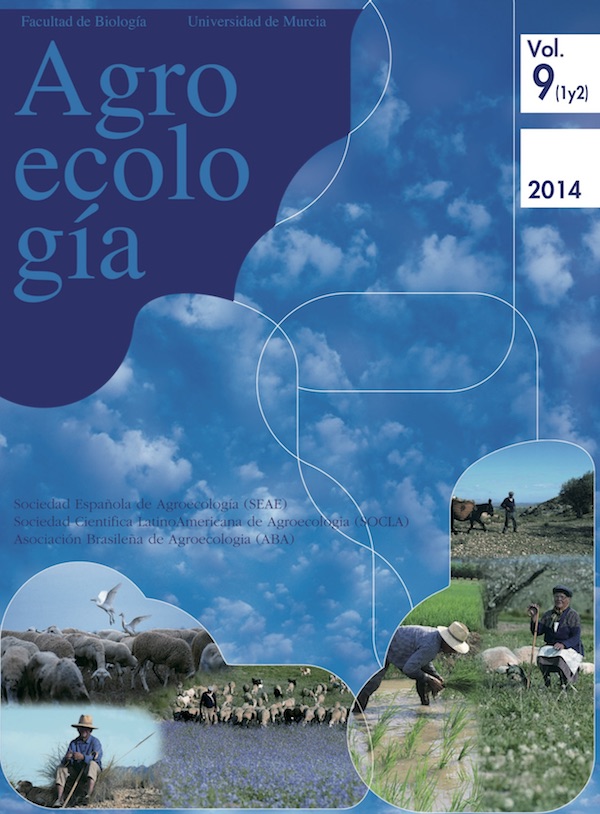Organic mexico: situation and perspectives
Abstract
Several environmental, social, economic cultural and political factors have currently raised interest in the development of organic agriculture, acknowledged as an economically efficient, socially just and ecologically sustainable alternative, with the potential to reduce negative im- pacts related to traditional farming. Despite its dynamism, reflected in growth rates greater than 25%, official statistics do not record its evolution properly, due to which, this sector is becoming excluded from national agricultural policies. Therefore, the permanent updating of statistics is crucial for the definition of policies for its growth. In this sense, this article presents and analyzes the data taken in 2007 and 2008 in the project “Sistema de Seguimiento e Información de la Agricultura Orgánica de México” (Mexican Organic Agriculture Information and Followup System), which the authors began in 1995,shert outlook for 2012.The geography of production,the diversification of the production, the farmers ́ profiles, the participation of the indigenous population, the role played by women, problems that stops their impacts from being boosted, and opportunities, are some of the factors that stand out.Downloads
Las obras que se publican en esta revista están sujetas a los siguientes términos:
1. El Servicio de Publicaciones de la Universidad de Murcia (la editorial) conserva los derechos patrimoniales (copyright) de las obras publicadas, y favorece y permite la reutilización de las mismas bajo la licencia de uso indicada en el punto 2.
2. Las obras se publican en la edición electrónica de la revista bajo una licencia Creative Commons Reconocimiento-NoComercial-SinObraDerivada 3.0 España (texto legal). Se pueden copiar, usar, difundir, transmitir y exponer públicamente, siempre que: i) se cite la autoría y la fuente original de su publicación (revista, editorial y URL de la obra); ii) no se usen para fines comerciales; iii) se mencione la existencia y especificaciones de esta licencia de uso.
3. Condiciones de auto-archivo. Se permite y se anima a los autores a difundir electrónicamente las versiones pre-print (versión antes de ser evaluada) y/o post-print (versión evaluada y aceptada para su publicación) de sus obras antes de su publicación, ya que favorece su circulación y difusión más temprana y con ello un posible aumento en su citación y alcance entre la comunidad académica. Color RoMEO: verde.





